Bullous Skin Disorder
Otherwise known as a blistering disease, the blisters caused by bullous skin disorders are often sore, itchy or uncomfortable, and sometimes even painful. Bullous skin disorder is a broad term encompassing a group of rare blistering diseases thought to be caused by an autoimmune skin disorder. Bullous diseases include the following skin disorders: Bullous pemphigoid, Dermatitis herpetiformis, Epidermolysis bullosa, Epidermolysis bullosa acquisita, Linear immunoglobulin A disease, Mucous membrane pemphigoid, Pemphigoid gestationis, Pemphigus foliaceus, and Pemphigus vulgaris.
Bullous skin disorders cause a range of skin lesions that can form on the skin and mucous membranes, such as itchy, hive-like welts and large, fluid-filled blisters that can become infected to blisters on the lining of the mouth and nose.
Examples of Bullous Skin Disorder
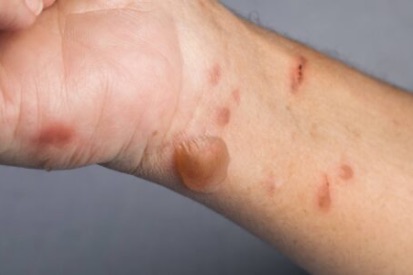
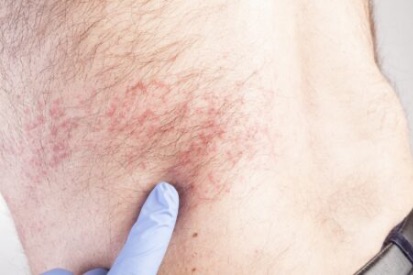
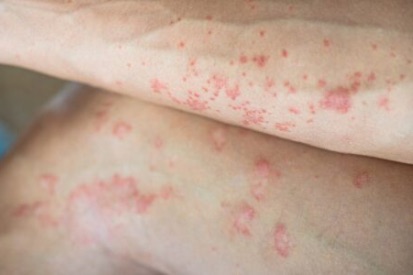
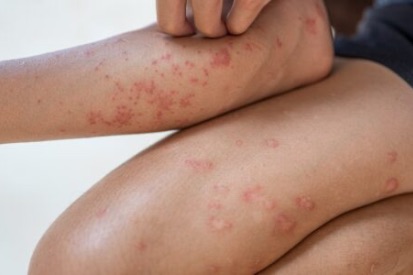
Symptoms of Bullous Skin Disorder
- Blisters that are filled with clear fluid (bullae).
- Itching or burning sensation in the affected area.
- Pain or tenderness around the blisters.
- Redness or inflammation of the skin.
- Skin peeling or shedding around the blisters.
- Fever or other systemic symptoms in some cases.
Causes of Bullous Skin Disorder
- Autoimmune reactions: The immune system mistakenly attacks healthy skin cells, leading to blister formation.
- Genetic factors: are inherited and result from genetic mutations.
- Infections: Infections, such as herpes simplex virus (HSV) or varicella-zoster virus (VZV), can cause bullous eruptions.
- Drug reactions: Some medications can cause a reaction.
- Physical factors: Exposure to physical factors like heat, friction, or radiation.
- Other underlying conditions: Liver or kidney disease.
Preventing Bullous Skin Disorder
Bullous Skin Disorder FAQs
Bullous skin disorders are quite rare. They occur more often in people over the age of 60 but can sometimes occur in children. Additionally, patients with underlying health conditions may be at higher risk for bullous skin disorders, as some may trigger an autoimmune attack on the skin.
Bullous skin disorders and diseases are thought to be caused by an abnormal autoimmune response, which means this type of skin condition occurs when the body’s immune system attacks the layer of tissue below the top layer of skin. Scientists and researchers have not discovered the exact reason behind this attack, but bullous pemphigoid can sometimes be triggered by certain medications, such as penicillin.
At The Dermatology & Skin Surgery Center of Wilmington, our board-certified dermatologists will first perform a thorough skin evaluation to confirm the diagnosis. This may include a blood test and biopsy (a small sample of the skin) for laboratory testing.
Additionally, a dermatologist will ask you about the signs and symptoms you’ve been experiencing to better identify the type of bullous skin disorder. This is necessary for finding the best treatment plan.
Bullous skin disorder treatment typically includes:
- Corticosteroids (in cream or pill form)
- Sometimes other drugs, including immunosuppressants for people with severe disease
Symptoms usually lessen within months, but treatment is sometimes needed for several years, depending on the type and severity of the bullous skin disorder.
Scars may appear when the blisters caused by bullous skin disorders heal. In most cases, this depends on the type of bullous skin disorder, as some cause more severe blistering than others that may lead to extensive scarring.
Bullous skin disorders can sometimes be painful, depending on the location and severity of the blistering. Pain and discomfort can be minimized with proper care and treatment.
Bullous Skin Disorder Treatment Options
Related Blogs
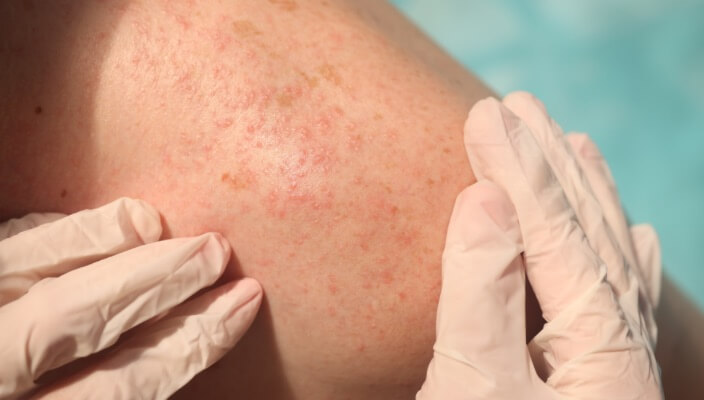
- General Dermatology
- Chronic Skin Conditions
At The Dermatology & Skin Surgery Center of Wilmington, we understand how hard it can be to distinguish eczema and psoriasis from one another.
Read More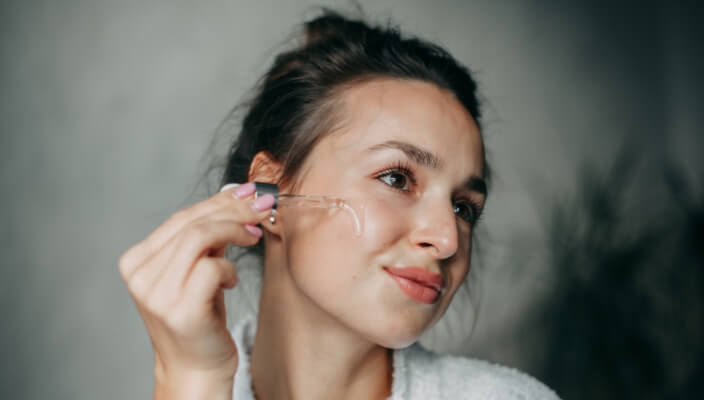
- Skin Care
Whether you’re searching for a serum, face mask, eye cream, or something else, we’re here to help you find effective skincare routine extras that are dermatologist-recommended and proven to contribute to a healthy complexion.
Read More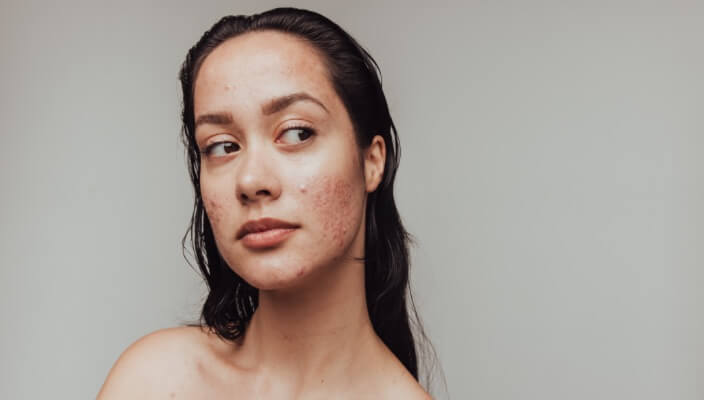
- Skin Cancer
- General Dermatology
- Chronic Skin Conditions
Learn more about the most common types of skin lesions we see at Westerville Dermatology and how our dermatologists remove them.
Read MoreFeatured Products

SkinCeuticals Gentle Cleanser Cream
Formulated for dry, sensitive or traumatized skin, Gentle Cleanser removes excess impurities and oil without drying the skin. Gentle enough to be used several times a day, this non-irritating cleanser conditions, soothes, and calms.

ZO® Gentle Cleanser All Skin Types
Cleanses impurities for refreshed-feeling skin. 200 mL / 6.7 Fl. OZ
